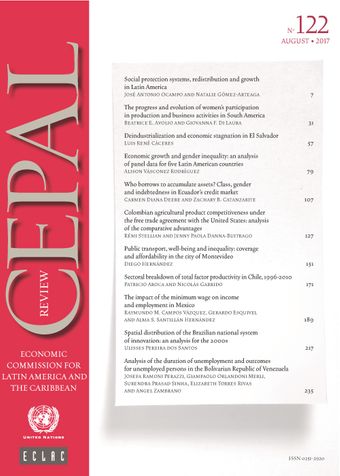-
Spatial distribution of the Brazilian national system of innovation: An analysis for the 2000s
- Source: CEPAL Review, Volume 2017, Issue 122, Aug 2017, p. 217 - 234
- Spanish
-
- 05 Jan 2018
Abstract
Regional inequality is an intrinsic characteristic of economic underdevelopment. Some structuralists have attributed this feature to the unequal distribution of the benefits of technical progress among subnational regions. This process is thought to be related to the spatial distribution of the components of the national innovation system, which is such that the available opportunities for taking advantage of the benefits of technical progress differ from one region in Brazil to the next. This study examines the distribution of science, technology and innovation assets among different Brazilian microregions in the years from 2000 to 2010. Its findings indicate that the territorial scope of the national innovation system expanded during the period under study to encompass a larger number of microregions and thus has come to exhibit a greater degree of spatial continuity. This process occurred in parallel with a trend towards a greater regional deconcentration of income in the country.





